101 Basic Japanese Words and Basic Japanese Phrases for Travel in Japan
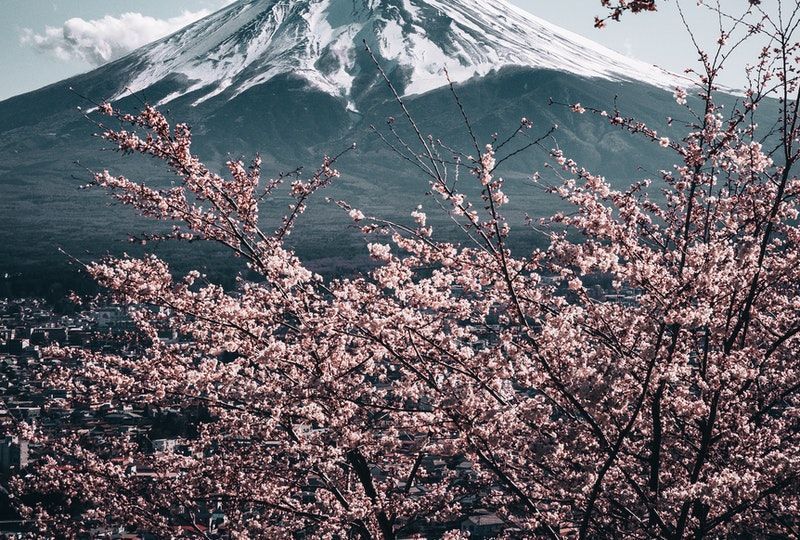
Travel in Japan is the ultimate goal of many Japanese students. Not only is it a fascinating and eye-opening experience; it’s a great opportunity to practice using basic Japanese words and basic Japanese phrases in a setting other than the classroom.
Having a selection of basic Japanese phrases ready to use as you travel in Japan will help you get around and improve your pronunciation as you interact with native speakers. After all, there is no better way to learn any new language than practical application!
We have assembled a list of practical, basic Japanese phrases that will make your journey through this ancient culture even more educational and memorable. Speechling has many tools to help with comprehension and pronunciation as you prepare for your trip and commit these basic Japanese phrases and words to memory.
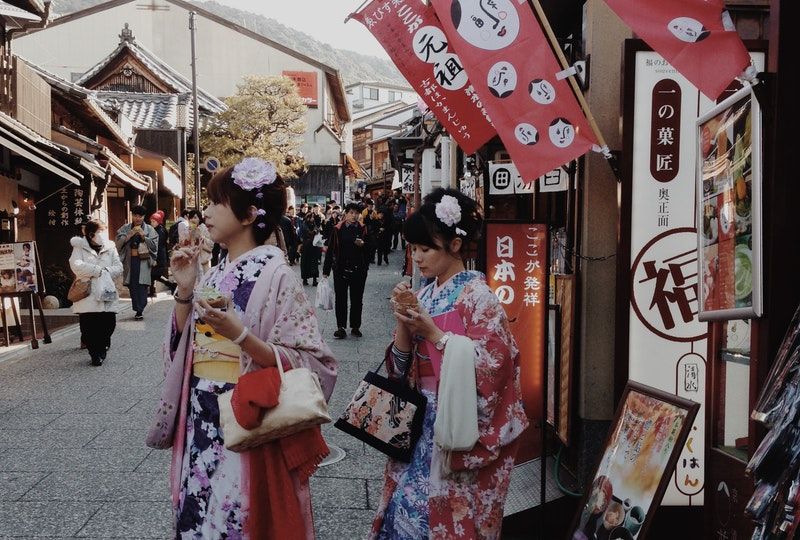
The Basics
These basic Japanese words and phrases allow you to greet people and interact throughout the day. As you use them, remember what you’ve learned about the high premium placed on respect in this culture! When in doubt, err on the side of too much deference.
- Hello: Konnichiwa. こんにちは
- Good morning: Ohayo- gozaimasu. おはようございます
- Good afternoon: Konnichiwa. こんにちは (yes, this is the same as “hello”!)
- Good evening: Konbanwa. こんばんは
- Goodbye: Sayo-nara. さようなら
- Please: Kudasai. ください
- Thank you: Arigato- gozaimasu. ありがとうございます
- How are you?: Ogenki desu ka? お元気ですか?
- Yes: hai. はい
- No: EE-eh. いいえ
- My name is __ : Watashi no namae wa __ desu. 私の名前は __ です
- What’s your name?: Onamae wa nan desu ka? お名前は何ですか? (おなまえは なんですか?)
- It’s nice to meet you: Hajimemashite. 始めまして (said at the beginning of a conversation, not when parting)
- Sorry: Gomen-nasai. 御免なさい
- Excuse me: Sumimasen. すみません
- Where is the?: __ wa doko desu ka? __ はどこですか?
- I don't understand. Wakarimasen. わかりません
- I do not speak Japanese: Nihongo o hanashimasen. 日本語を話しません (にほんごを はなしません)
- Do you speak English?: Ehgo o hanashimasu ka? 英語を話しますか?(えいごを はなしますか?)
- Please repeat that: Mo- ichido itte kudasai. もう一度言ってください (もういちど いってください)
- Please speak slowly: Yukkuri hanashite kudasai ゆっくり話してください (ゆっくり はなしてください)
- Would you please help me?: Tetsudatte moraemasuka? 手伝ってもらえますか? (てつだって もらえますか?)
- I want to go: (Koko) ni ikitai no desu. (ここ)に行きたいのです ((ここ) に いきたいのです)
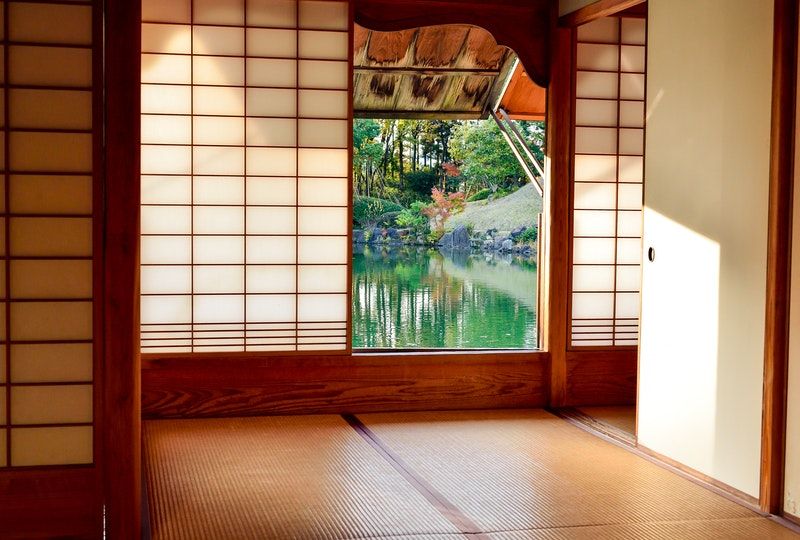
Transportation and Lodging
As in most countries, Japanese transit and hotel staff seem to have a language of their own. Do some reading online before your trip, just to acquaint yourself with some of the quirks you may encounter in Japanese hotels (for example, you’re expected to tidy your own hotel room). Here are some basic words and phrases that will be helpful.
- How much is a ticket to __ ?: ___ madeh ikura desu ka? ___ までいくらですか ?
- A ticket to__, please: ___ madeh ichimai onegaishimasu. __ まで一枚お願いします
- Where does the train/bus go?: Kono densha/basu wa doko yuki desuka? この(電車/バス)はどこ行きですか ?
- Where is the train/bus to (a location)?: ___ yuki no densha/basu wa doko desuka? ___ 行きの(電車/バス)はどこですか?
- Does this train/bus stop in __ ?: Kono densha/basu wa ___ ni tomarimasuka? この(電車/バス)は ___ に止まりますか ?
- When does the train/bus for ___ leave?: ___ yuki no densha/basu wa nanji ni shuppatsu shimasuka? ___ 行きの(電車/バス)は何時に出発しますか?
- When will the train/bus arrive in __ ?: Kono densha/basu wa nanji ni ___ ni tsukimasuka? この(電車/バス)は何時に _____ に着きますか?
- Do you have rooms available?: Aiteru heya arimasuka? 空いてる部屋ありますか?
- How much does lodging for one/two cost?: Hitori/futari-yō no heya wa ikura desuka?一人/二人用の部屋はいくらですか?
- Is the room Japanese/Western style?: Washitsu/yōshitsu desuka? 和室/洋室ですか?
- Does the room come with __ ?: Heya wa ___ tsuki desuka? 部屋は ... 付きですか?
- May I see a room first?: Heya o mitemo ii desuka? 部屋を見てもいいですか?
- I'll take it: Kore de ii desu. これで良いです
- I would like to stay for ___ night(s): ___ haku onegaishimasu. ___ 2泊お願いします
- Do you know another place to stay?: Hoka no yado wa gozonji desuka? 他の宿はご存知ですか?
- What time is breakfast/supper?: Chōshoku/yūshoku wa nanji desuka? 朝食/夕食は何時ですか?
- Please wake me at___: __ ni okoshite kudasai.__ に起こしてください
- I would like to check out: Chekku auto (check out) onegaishimasu. チェックアウトお願いします

Shopping
As soon as you walk into a retail business or restaurant in Japan, you will be greeted with, “Irrashai maseh” (いっらしゃいませ)! It is a general welcome by employees to all customers, so all you need to do is nod in acknowledgement, if anything. You’ll probably hear the following phrases from the store clerk as you shop:
- Are you looking for something?: Nani ka osagashi desu ka? 何かお探しですか?
- Is that everything?: Ijyou de yoroshii desu ka? 以上でよろしいですか?(いじょうで よろしいですか?)
- Here you go: Hai, douzo. はい、どうぞ
Your responses may include phrases such as:
45. I would like this item: Kore o onegai shimasu. これを おねがいします
46. I would like one of those: Sore o hitotsu onegai shimasu. それを一つお願いします (それを ひとつ おねがいします)
47. How much does it cost?: kore wa ikura desu ka?これは いくらですか?
48. Do you accept a credit card?: Kureditto kaado (credit card) o tsukaemasuka? クレジットカードを使えますか?

Dining Out
Dining out provides lots of opportunity to practice your Japanese, but it is also an activity that can be quite different in Japan. Do some research before you go to learn as much as you can, and then enjoy Japan’s world-famous food!
- Space for one person/two people, please: Hitori/futari desu. 一人/二人です.
- Please bring a menu: Menu o kudasai. メニューを下さい。
- Is there a house specialty? O-susume wa arimasuka? お勧めはありますか?
- Fixed-price meal: Teishoku. 定食
- A la carte: Ippinryōri. 一品料理
- Breakfast: Chōshoku. 朝食
- Lunch: Chūshoku. 昼食
- Light meal: Keishoku. 軽食
- Supper: Yūshoku. 夕食
- Beverage: Nomimono. 飲み物
- I want a dish containing __ : __ ga haitteru mono o kudasai. __ が入ってるものを下さい。
- Chopsticks: ohashi. お箸
- It was delicious: Oishikatta desu. おいしかったです
- Excuse me: Sumimasen. 済みません
- May I have the check, please? Okaikeh onegai shimasu. お会計お願いします
- Do you serve alcohol? Osakeh arimasuka? お酒ありますか?
- Sake: Nihonshu. 日本酒
- Japanese liquor: Shōchū.焼酎
- Whiskey: Wiskii. ウイスキー
- Water: Mizu. 水
- Club soda: Sōda: ソーダ
- Coffee: Co-hii. コーヒー (こーひー)

Time and Numbers
You may encounter military time in Japan, or the terms “gozen” 午前 for a.m. and “gogo” 午後 for p.m. Check out this resource for some additional explanation; this topic can get tricky. Also, remember that the Japanese readings “yon” and “nana” are often used for 4 and 7 due to superstition about the translation (“shi,” used in another reading for both those numbers, translates as death).
- Six o'clock a.m.: Asa rokuji. 朝6時
- Noon: Shōgo. 正午
- One o'clock p.m.: Gogo ichiji. 午後1時
- Midnight: Yoru jūniji: 夜12時
- ___ minute(s): ___ foon or poon. 分
- ___ hour(s): ___ jikan. 時間
- ___ day(s): ___ nichi. 日
- ___ week(s): ___ shūkan. 週間
- ___ month(s): ___ kagetsu. ヶ月
- ___ year(s): ___ nen. 年
- 0: zero. 零
- 1: Ichi. 一
- 2: Ni. 二
- 3: San. 三
- 4: Yon or shi. 四
- 5 : Go. 五
- 6: Roku. 六
- 7: Nana or shichi. 七
- 8: Hachi. 八
- 9: Kyū. 九
- Now: Ima. 今
- Later: Atodeh. 後で
- Before: Maeh ni. 前に
- Morning: Asa. 朝
- Afternoon: Gogo. 午後
- Evening: Yūgata. 夕方
- Night: Yoru. 夜
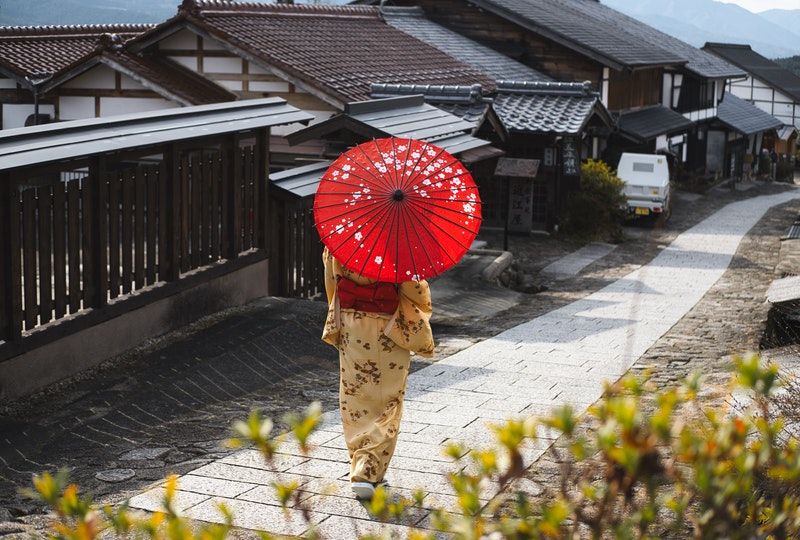
Words or Phrases to Avoid
These phrases can convey disrespect. You don’t want to offend anyone, especially people you don’t know, so make sure to avoid these terms, even if you hear them being tossed around in your favorite anime.
- Doing something untimely: Manuke. まぬけ
- Drop dead!: Kutabare. くたばれ
- Move out of the way!: Doke. どけ
- Noisy!: Urusai.うるさい
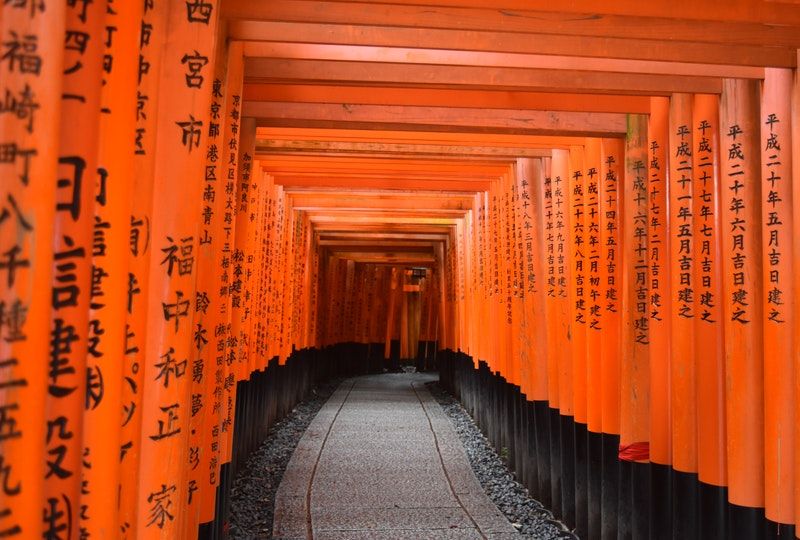
Enjoy Your Trip!
As you prepare to travel in Japan, use Speechling’s pronunciation tools to master the phrases provided on this list. Review The Top 5 Pronunciation Mistakes English Speakers Make in Japanese Lessons, too, and then the Top 100 Basic Japanese Words for Beginners for additional words that weren’t included in this list. Native speakers will appreciate the effort you took to use Japanese words and phrases, even if they aren’t perfect!
